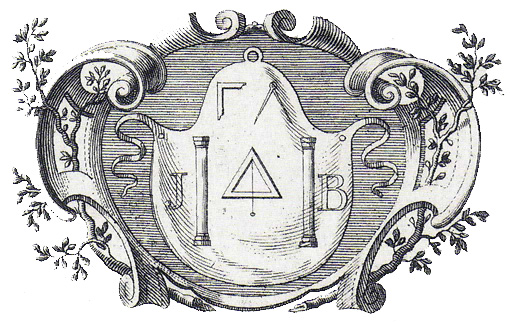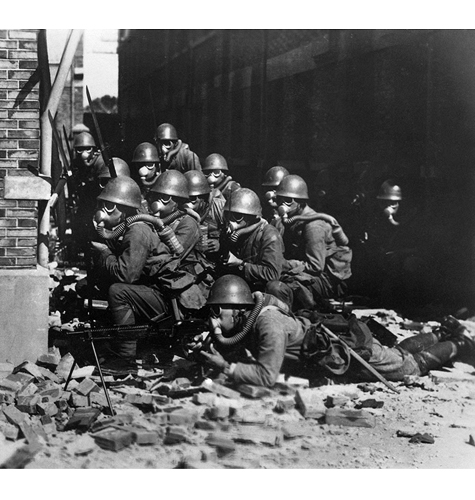Introduction
In 1356, to end a violent conflict between mason hewers (1) and mason layers (or setters) (2), the London authorities, acting on behalf of the King of England, Edward III (1312-1377), drew up special regulations to organize the craft of stone construction. Those corporate rules were strengthened during the following century, with the creation of a Company of Masons of London in 1481.
The place – Founded under the name of Londinium by the Romans after the conquest of Britain by Claudius’ legions, in the 1350s London was a real ghost town its population halved within two years by the plague more commonly known as the Black Death.
Therefore, within its walls there were a large number of workers and tradesmen from all backgrounds and, as a result of the labor shortage and dislocation caused by the massive and indiscriminate death toll of the plague, a significant deterioration of local social conditions.
The context – In terms of political and military events, England and France were fighting the Hundred Years’ War, initiated in 1337 by the confiscation of Aquitaine province from the English by Philip VI (1293-1350). In 1346, Edward III defeated some 60,000 French at Crécy, in 1356; he did even better in capturing John le Bon (1330-1376) at the battle of Poitiers, and in 1360, by a new military success, forced France into the ruinous Treaty of Brétigny.
The document – The London Regulations for the trade of Masons was originally issued in the Norman-French language (known as legal French) on February 2, 1356 on a scroll which is currently held by the London Metropolitan Archives.
Despite the fact that the Norman invasion of England by William the Conqueror (c.1027-1087) had occurred some 300 years previously, (Norman) French remained the official language of the Kingdom.
To reproduce this document, we have used the English transcripts of Henry Thomas Riley (Memorials of London and London Life, 1868), Robert Freke Gould (The History of Freemasonry, 1887) and Douglas Knoop (The Mediæval Mason, 1933).
Modern transcription from Norman-French.
The Text
At a Congregation of Mayor and Aldermen held on the Monday next before the purification of the Blessed Virgin Mary (2 February.) in the thirtieth year of the reign of King Edward III, etc.,
There being present Simon Fraunceys the Mayor, John Lovekyn, and other Aldermen, the Sheriffs, and John Little, Symon de Benyngtone, and William de Holbeche, commoners,
Certain Articles were ordained touching the trade of Masons, in these words:
1. – Whereas Simon Fraunceys, Mayor of the City of London, has been given to understand that various dissensions and disputes have occurred in the said City, between the Masons who are Hewers on the one hand, and the light-Masons and Setters on the other; because their trade has not been regulated in due manner by the government of folks of their trade in such form as other trades are.
Therefore the said Mayor, for maintaining the peace of our Lord the King, and for allaying such manner of dissensions and disputes and for nurturing love among all manner of folks, in honor of the said City and for the profit of the common people, by assent and counsel of the Aldermen and Sheriffs, caused all the good folks of the said trade to be summoned before him, to have from them good and due information how their trade might be best ordered and ruled, for the profit of the common people.
2. – Whereupon the good folks of the said trade chose from among themselves twelve of the most skillful men of their trade to inform the Mayor, Aldermen, and Sheriffs, as to the acts and articles touching their said trade: that is to say Walter de Sallynge, Richard de Sallynge, Thomas de Bredone, John de Tyringtone, Thomas de Gloucestre, and Henry de Yevelee, on behalf of the Mason Hewers; Richard Joye, Simon de Bartone, John de Estoune, John Wylot, Thomas Hardegray, and Richard de Cornewaylle on behalf of the Light-Masons and Setters; which folks were sworn before the aforesaid Mayor, Aldermen, and Sheriffs, in manner as follows:
3. – In the first place that every man of the trade may work at any work touching the trade, if he be perfectly skilled and knowing in the same.
4. – Also, that good folks of the said trade shall be chosen and sworn every time that need shall be, to oversee that no one of the Trade takes work to complete, if he does not well and perfectly know how to perform such work; on pain of losing, to the use of the commonality, the first time that he shall by the persons so sworn be convicted thereof one mark (3); and the second time two marks; and the third time he shall forswear his trade for ever.
5. – Also, that no one shall take work in gross if he be not in ability, in a proper manner to complete such work; and he who wishes to undertake such work in gross shall come to the good men, of whom he has taken such work to do and complete and shall bring with him six or four Ancient men of his trade, sworn thereunto, if they are prepared to testify unto the good men of whom he has taken such work to do, that he is skillful and of ability to do such work and that if he shall fail to complete such work in due manner, or not to be of ability to do the same, they themselves who so testify that he is skillful and of ability to finish the work are bound to complete the same work, well and properly, at their own charges, in such manner as he undertook; in case the employer who owns the work shall have fully paid the workman.
And if the employer shall then owe him anything let him pay it to the persons who have so undertaken for him to complete such work.
6. – Also, that no one shall set an apprentice or journeyman to work, except in the presence of his Master, before he has been perfectly instructed in his calling; and he who shall do the contrary, and by the person so sworn be convicted thereof, let him pay the first time to the commonality half a mark; and the second time one mark; and the third time 20 shillings; and so let him pay 20 shillings every time that he shall be convicted thereof.
7. – Also, that no man of the said trade shall take an apprentice for a less time than seven years, according to the usage of the City; and he who shall do the contrary thereof, shall be punished in the same manner.
8. – Also, that the said Masters so chosen shall see that all those who work by the day shall take for their hire according as they are skilled and may deserve for their work and not outrageously.
9. – Also, that if any one of the said trade will not be ruled or directed in due manner by the persons of his trade sworn thereto, such sworn persons are to make known his name unto the Mayor; and the Mayor by assent of the Aldermen and Sheriffs, shall cause him to be chastised by imprisonment, and other punishment so that rebels may take example by him, to be ruled by the good folks of their trade.
10. – Also, that no one of the said trade shall take the apprentice of another to the prejudice or damage of his Master until his term shall have fully expired, on pain of paying, to the use of the commonality, half a mark each time that he shall be convicted thereof.
NOTES
1. – Mason hewer – Mason who cuts and carves the stone.
2. – Mason layer (or setter) – Mason who builds the walls and realizes the building.
3. – Mark – Old English monetary unit; it was worth 13 shillings and 4 pence (or pennies), or two-thirds of a pound sterling.










